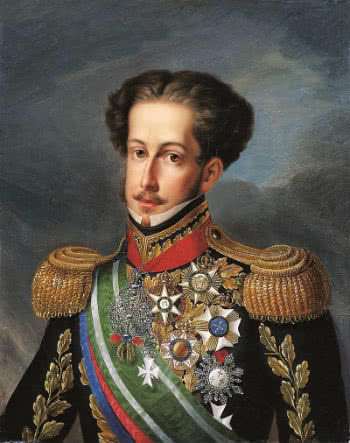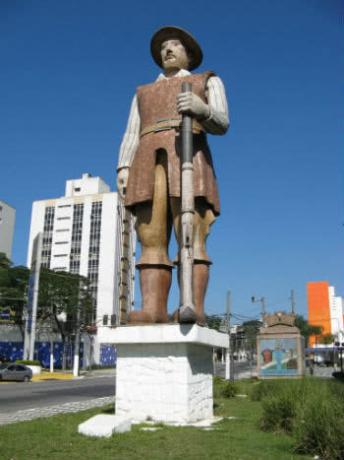Mahatma Gandhi was an Indian lawyer and politician, founder of Independent India.
Gandhi received the title of "Mahatma", a Sanskrit word meaning "The Great Soul".
spread the "Satyagraha", the principle of non-aggression, as a way to make a revolution without weapons.
Biography
Mohandas Karamchand Gandhi was born on October 2, 1869, in Porbandar, western India.
Gandhi was the son of the local Prime Minister and a devout Vaisnava. His education began in India and was completed in England, where he received a law degree from the "University College". This was contrary to the precepts of their caste, which prohibited travel to the British metropolis.
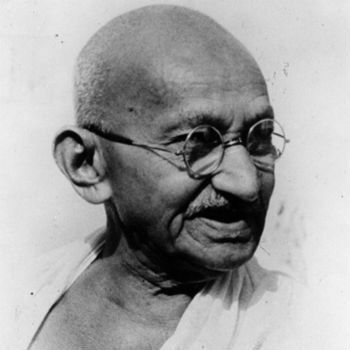
Returning to India in 1891, Mohandas did not stay long in his homeland, as he traveled to South Africa. There, he lived for a year and represented an Indian firm, which earned him renown for his successful performance.
Afterwards, Gandhi returned to South Africa with his wife and children and lived in this country for twenty years.
Indian People's Liberation
Gandhi's first public appearance for the freedom of India took place in September 1906. The Government of Transvaal (South Africa) wanted to register the Hindu population, but the Hindus refused to do so.
Gandhi and other Hindus were arrested and sentenced to two months of hard work, which went on strike involving some 50,000 workers.
As a result of this action, the British government relented. With that, all marriages were validated, taxes owed were forgiven, and Indians were given more freedom.
When he returned to India in 1915, Mahatma Gandhi sought to make Hindu and Muslim society aware of the need for a peaceful struggle for independence of india.
Thus, Gandhi would face the British government openly in 1919, as it sought to institute the "Rowlatt Act".
This law consisted of applying emergency measures such as the detention of people accused of terrorism and keeping them in prison for two years without trial.
Thus, in 1920, Gandhi began a nationwide campaign. The pacifist revolutionary traveled through Hindu territory in order to make the Indian people aware of not collaborating with the British government.
Gandhi asked people not to pay taxes, not buy alcohol and make their own clothes.
Finally, in 1928, the campaign against tax increases grew, leading the Indians to refuse to pay taxes.
The British government's crackdown on protesters was violent, with executions and arrests, however, the Indians did not respond aggressively.
Thus, the British were forced to cancel the increases, release the prisoners and restore confiscated land and property. All this through the return of tax payments by the Indians.
Later, Mohandas performed the "Marcha do Sal" or "Marcha Dândi", which led to massive civil disobedience from March 11, 1930.
Gandhi began a nearly 200km march towards the sea, bringing together tens of thousands of protesters.
These went to the seashore, where they collected the salt water in basins and produced the salt itself, something prohibited by the British.
In total, 60,000 people followed the march and more than 50,000 witnessed the production of the salt. For this action, Gandhi was immediately arrested by the British authorities.
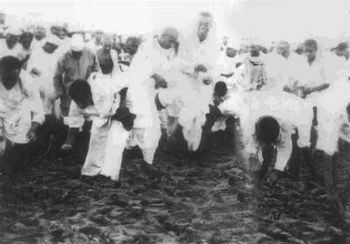
In the meantime, so many arrests were made that the prisons were overcrowded as 100,000 Hindus were incarcerated.
Finally, Gandhi was invited to a meeting with Viceroy Lord Irwin (1881-1959) in 1931. From this meeting, the Irwin-Gandhi pact was born, which established:
- the cancellation of the Civil Disobedience movement;
- release of prisoners;
- permission for private salt production;
- participation of the Indian National Congress party at the negotiating tables on India's problems.
Gandhi continued his revolutionary and non-violent journey for political freedom in India. In 1942 he was arrested again, along with several leaders of the revolution. Everyone decided to fast, but only Mahatma Gandhi survived.
In 1947, the British set a date to withdraw from India. This was possible through Gandhi's actions and thanks to the pressure of the Indian bourgeoisie, which strengthened the nationalist movement, starting from the Indian National Congress Party.
The British also wanted to avoid open confrontation, as they would not be able to sustain a war after World War II had just ended. However, they maintained their economic interests in India.
Mahatma Gandhi exerted great influence among the Hindu and Muslim communities in India. Despite this, it failed to mitigate rivalries, which delayed the independence process.
Likewise, it did not prevent the creation of two distinct states: India, with a Hindu majority and Pakistan, with a Muslim majority.
Prison
During his journey for Indian independence, Mahatma Gandhi was imprisoned several times, totaling a period of 6 years.
In prison, the pacifist learned about the work of Russian writer Leon Tolstoy (1828-1910). With him, Gandhi exchanged letters and learned about the libertarian ideas of that thinker.
Tolstoy was also responsible for directing the reading of Henry David Thoreau to Gandhi, thus leading him to discover the basis for Civil Disobedience.
Death
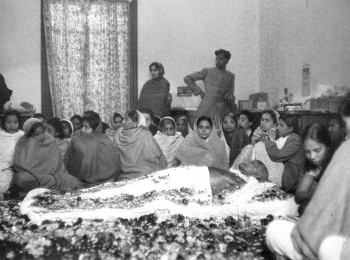
Finally, on January 30, 1948, Gandhi was shot dead in New Delhi by a Hindu radical. According to the Hinduism, the Mahatma's body was incinerated and his ashes were hurled into the Ganges River.
Principles
Gandhi's ideas and actions would influence thinkers throughout the 20th century like the American pastor Martin Luther King.
These principles can be summarized as:
- Non-violence: assume that hurting another person is like attacking yourself, however attacking an unjust system is justifiable and possible thanks to civil disobedience.
- The boycott: known in India as the policy of the "swadeshi", that is, boycott of imported goods from England, as well as by encouraging the domestic production of clothing (the khadi) to the detriment of English fabrics and products.
- Civil disobedience: refusal to pay taxes to a state deemed illegitimate. In this case, the UK.
Sentences
- "Violence is created by inequality, non-violence for equality".
- “Prison is not the bars, and freedom is not the street; there are men trapped in the street and free in prison. It's a matter of conscience”.
- "There is no way to peace. The peace is the way".
- "There is enough wealth in the world for man's needs but not for his ambition."
- "Just as a drop of poison compromises an entire bucket, so a lie, no matter how small, spoils our whole life."
Quiz of personalities who made history
Read more about:
- Caste System in India
- Indian culture
- Hinduism
- Imperialism in Asia

